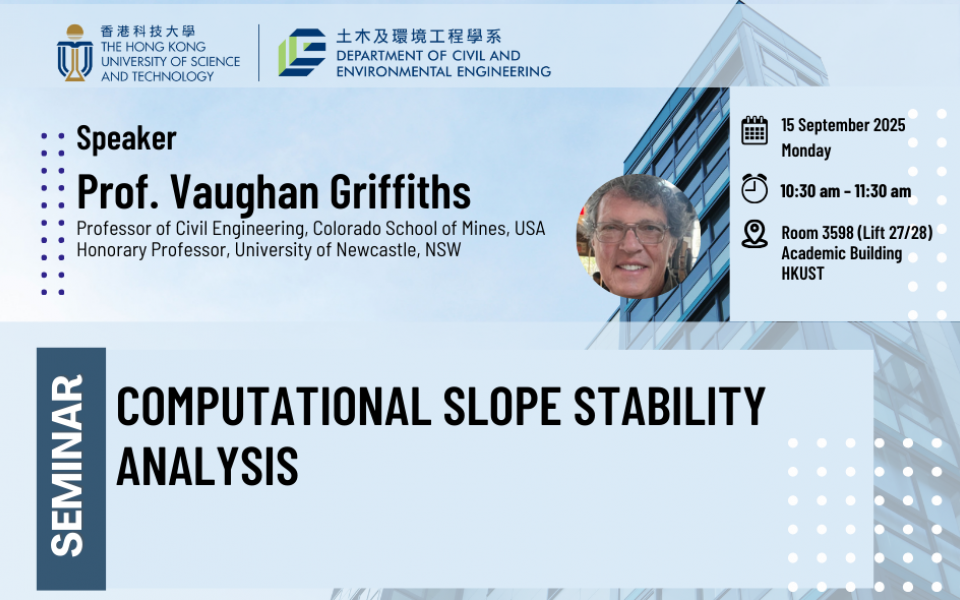Civil Engineering Departmental Seminar - Computational Slope Stability Analysis
Supporting the below United Nations Sustainable Development Goals:支持以下聯合國可持續發展目標:支持以下联合国可持续发展目标:
Computational Slope Stability Analysis
Slope stability analysis remains a central activity for geotechnical practitioners and a continued area of interest and research for academics. A wide range of methodologies for slope stability analysis have been developed, ranging from Taylor’s charts from the 1930s to state-of-art random finite element methods for probabilistic analysis. The lecture starts with a general discussion of the factor of safety and discusses the significant contrast between factors on loads, as opposed to factors on strength. A classical slope problem solved by Taylor is then revisited using (i) simple optimization assuming circular failure mechanisms, (ii) elastic-plastic finite elements with strength reduction and (iii) upper- and lower-bound finite element limit analysis. The results show the benefits of the finite element approaches, especially as the slope becomes relatively flat where the simple approach starts to overestimate the factor of safety.
D. Vaughan Griffiths PhD, DSc, PE, BC.GE, C.Eng, FICE, Dist.M.ASCE is a Professor and Head of the Department of Civil and Environmental Engineering at the Colorado School of Mines, USA. His research interests lie in application of finite element and risk assessment methodologies in geotechnical engineering, and his papers on slope stability analysis are among the most highly cited in the geotechnical engineering literature. He is the co-author of three textbooks that have gone into multiple and foreign language editions on “Programming the Finite Element Method”, “Risk Assessment in Geotechnical Engineering” and “Numerical Methods for Engineers”. He gives regular short courses worldwide on risk assessment in geotechnical engineering and slope stability analysis. He has acted as a consultant to industry on projects ranging from landslide analysis to petroleum geomechanics. He was the inaugural Suzanne Lacasse Lecturer in 2016 and in 2017, was named the Cross-Canada Lecturer by the Canadian Geotechnical Society and received the H. Bolton Seed Medal from the ASCE/Geo-Institute. He gave the TH Wu Distinguished lecture in 2021, the Wilson Tang lecture in 2022 and has been named the Terzaghi Lecturer for 2026. He was awarded a Fulbright Distinguished Chair for 2023 to work at the University of Newcastle, NSW. He served on the Board of Direction of ASCE from 2010-2013 and was inducted as a Distinguished Member of the ASCE in 2020.
